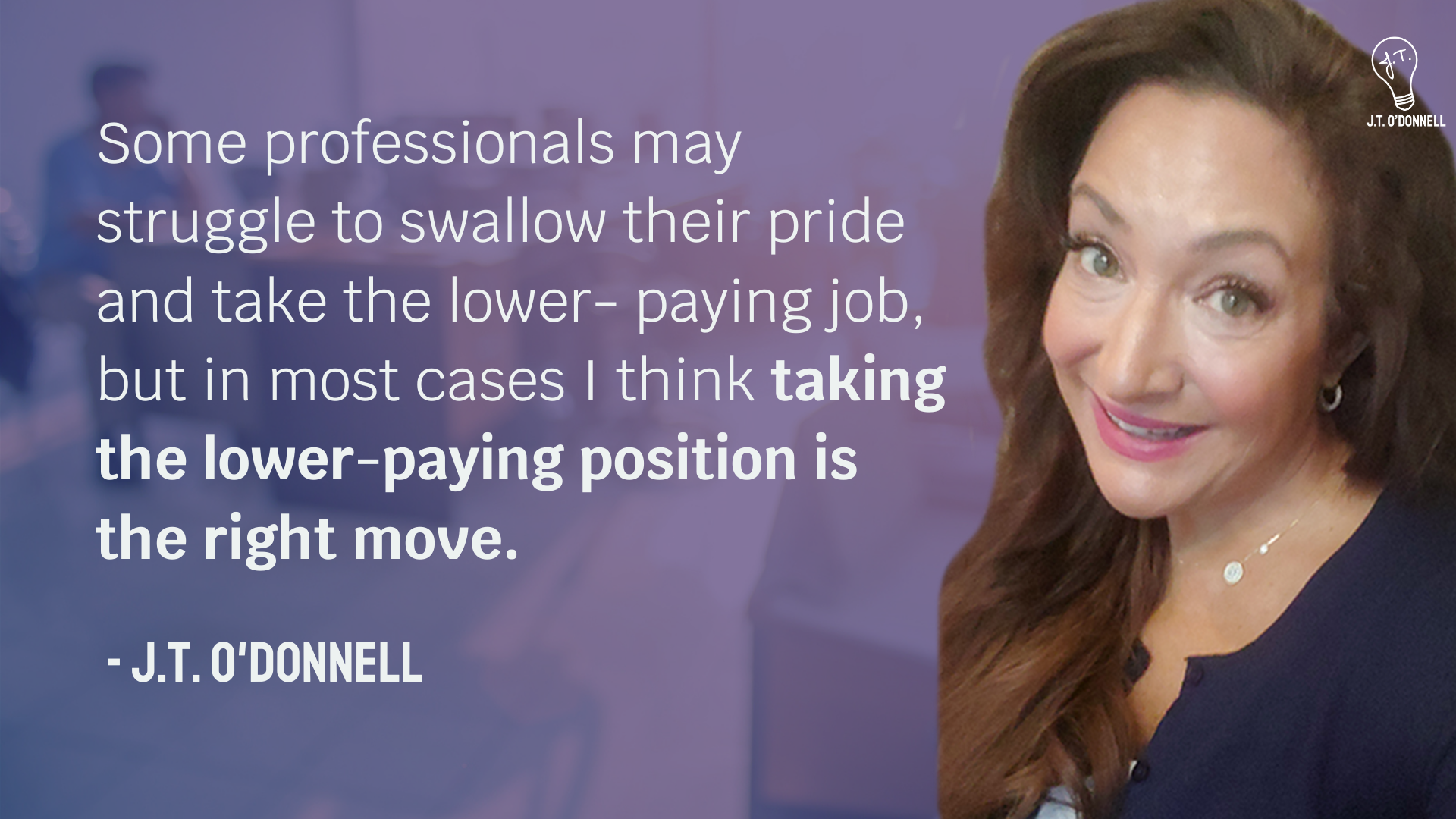Imagine the following scenario: a job seeker applies for two similar jobs in the same industry.
Job A is advertised in the salary range the job seeker is looking for and includes all of this professional’s key skill sets, and a few advanced ones that will help them grow.
Job B is advertised at a much lower salary range than the job seeker is looking for, and while the job includes all of this professional’s key skill sets, it could also be considered a minor step back in the professional ladder.
Ultimately, this professional is passed over for Job A, but told to stay in touch because another opening could come up in six months, and is offered Job B.
What should this professional do?
Some professionals may struggle to swallow their pride and take the lower- paying job, but in most cases I think taking the lower-paying position is the right move. Here’s why:
A Job Brings Structure
Every job is temporary, and just because you accept this lower-paying job doesn’t mean that you’re going to be working at it forever. In fact, you still have every right to continue to look for a higher-paying job in your spare time.
But, there are obvious advantages to being employed, most notably consistent income and structure. I know plenty of professionals that are job hunting while unemployed, and many of them say the lack of daily structure really gets to them.
By taking the lower-paying job, you have the benefit of conducting a job search while employed. That’s a benefit that many wish they had.
Being Unemployed Can Be A Disadvantage
Once you’ve been unemployed for more than six months, your job search faces an uphill battle. While recruiters don’t intentionally try to discriminate against the unemployed, it’s only natural that they’re going to have some questions if they see that someone has been unemployed for a long period of time.
- Why is this person unemployed?
- Was this person expendable at their last job?
- How has this person been using their time, while unemployed?
If you’re employed, albeit at a lower-paying job, you don’t have to answer these questions when you interview for a higher position. Instead, you can highlight experiences and accomplishments from your current job.
In addition, just because you’re working at a lower-paying job doesn’t mean you can’t gain valuable experience. In fact, while working that job, you should find ways to use your skills to add value to the position, and the company. That’s exactly the type of hustle and drive that you can show off as you apply, and interview for a higher-paying job.
You Could End Up Loving The Job
Plans have a funny way of changing, especially career plans.
Sometimes professionals start a job thinking it’s a stepping stone to another opportunity, only to realize that the job they’re working at is their perfect opportunity.
By working so hard at this lower-paying job, you impress your employer and suddenly you have an opportunity to grow your career at the company. If you’ve found happiness at that employer, you should absolutely take advantage of the opportunity to grow with them.
Finding the right career fit isn’t always easy, so if you have it, you should try to hold on to it and see where it goes.
Salary is something that you can always work up to, or negotiate, especially if you’re excelling at your job and consistently providing value to your employer.
Everyone has their own unique career story, and there may be circumstances where taking the lower-paying job isn’t the right move. But generally speaking a job opportunity is just that. An opportunity!
You can build on that opportunity and put yourself in position for the next one, or you can take that opportunity and turn it into your dream job.
Need Help Landing Your Next Job Opportunity?
At my company, Work It Daily, we use a combination of coaching and community to help our members reach their career goals. Work It Daily has a team of trained career support specialists that will work 1-1 with you to come up with a specialized plan to help. All of our memberships offer private 1-1 coaching along with unlimited networking potential, and a library of exclusive career courses. Additionally and for no extra cost, you’ll also receive unlimited resume, cover letter, and LinkedIn profile reviews by our trained specialists as part of our membership.
If you’re hesitant about a long-term subscription, you may want to check out one of our live training sessions that are available for a low, one-time payment.
Check out these FREE Work It Daily Resources


